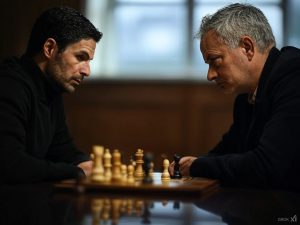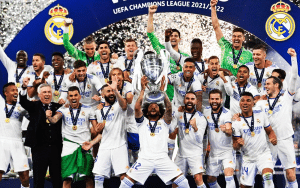Sixty-five per cent of sportsmen are reported to go broke (bankrupt) after they quit the limelight. In wages of English Premier League footballers are said to average £30 000 a week (more than many households earn annually) but seven out of every ten ex-footballers are reported to be ‘broke’ or having serious difficulties making ends meet.
Legendary sports-people like “Iron” Mike Tyson (earnings: $350 million, ) Evander Holyfield ($250 million) Allen Iverson ($154 million) Arantxa Sanchez Vicario and Steffi Graf all declared themselves broke after their illustrious careers at one point in time.
In Mother Africa, the figures are believed to be worse, but the fact that most ex-African stars play it smart and stay away from the public eye when it happens has helped mask the magnitude.
Some shockingly ask how on earth this is possible, judging by the enormous sums reportedly earned during their active days?
Well, let’s go through some of them together.
LACK OF FINANCIAL EDUCATION
Contrary to what most people think, most sportsmen are not complete illiterates or un-educated. They are just educated in the art of sports and not finance or at times, day to day management off their respective terrains.
To be rated one of the world’s best at anything, you must have the ability to have the knowledge of doing something better than most people on earth. Hence the title, one of the top in the world!
As you dedicate the total focus required all of your time to your sport, school education suffers as your education and mastery of the sport improves.
In most cases, top athletes are not educated in financial matters gotten from college education etc. This is no excuse I agree, but sportsmen are forced to hardly devote time to learn how to manage money.
Most superstars originate from acutely poor backgrounds and, in most cases, are raised by financially poor but not necessarily morally poor parents. They generally have a good heart but when the riches come to these sportsmen, they are found wanting in the know-how to handle this sudden wealth or further use it to safely earn more, without eventually losing it.
Case Study: Mike Tyson, ex-world heavyweight boxing champion
FAMILY AND FRIENDS
Particular to Coloured stars and Africans most especially, in contrast to their western colleagues, a man’s wealth is believed and shared among his family, and we do have huge families.
Once these sports stars hit the big time, family members and friends have to be catered for: school fees, feeding help, housing, burials etc . these and more are billed to the sports star who, maybe erroneously, thinks it is his duty to honour these demands. They become the favourite breadwinners for family and friends.
The financial burden that these stars inherit from family and extended families are at times so huge that it practically drains them dry.
How much to share with family, friends and their savings account is a dilemma for many African stars.
One of our most blessed African cultures is the communal sharing culture of life and a lovely one at that. It is deemed normal to share your earnings among family, unlike the western style where your family is just you, your wife and children. At times the kids are on their own once they reach 18 years of age or move out to live on their own.
Case Study: Arantxa Sanchez Vicario of Spain, a top ex-tennis star
SUDDEN WEALTH
A “normal” millionaire builds his millions gradually, but athletes make the majority of their income within a short period of time, at an early tender age. The entrepreneur can save over that lengthy period and learn to manage wealth at his own pace, unlike the young professional athletes.
This wealth sometimes breeds stubbornness and advice from well-meaning people are often ignored. Youth is known to be associated with errors, due to inexperience etc. and it is difficult to tell a rich, young sports star that his ideas are wrong. He might just ask you; “If you know it better, why aren’t you the rich one instead of me?”
Case Study: Mike Tyson, ex-world heavyweight boxing champion (world champion at age 17)
LACK OF POST-CAREER PLANS
Very few athletes seem to plan for their post-career life during their active days. The preparation of body and mind for the next stage in their lives is often not there. Some even erroneously think they will continue in the sport system for long periods after retirement, as coaches, managers, journalists or analysts. However, there is limited space to accommodate all exes at the same time and these functions need some form of education and study, which most athletes lack.
SPENDING MORE THAN WE SAVE
Generally, Everyone earns money (if you work) but not everyone saves in the same degree as they earn. Some sports stars mostly think that these huge earnings are not temporary but will last a lifetime.
A successful career lasts at the most 10 to 12 years but athletes sometimes seem to forget that there is much more living to do after retirement.
If an athlete retires at the age of 35years old and God lets them live over 70, they still have another 35 years to live. Boy those remaining 35 years or so seem to run slowly when the wealth is no longer there.
CASE STUDY: “I spent over a million dollars on jewellery”- Andre Rison, former NFL star
EXPENSIVE DIVORCE
Most sports stars meet their supposed better halves when they are active and are at their best. Retirement means a change to their lifestyle, social standing and also to that of their spouses. This and the more frequent presence at home stifles and pressurises marriages. The end result is often divorce and they usually don’t come cheap. The effects are usually devastating and the inability to cope causes bankruptcy for many, as you can imagine.
Case Study: Kenny Anderson (Ex basketball star) lost $60 million to ex-wives
WRONG BUSINESS INVESTMENTS
As is to be expected, with so much money earned, many athletes try to invest and follow bad advice from managers and so-called friends. In most cases, they invest in ventures that they have no expertise in and often these deals go bad.
The success most athletes have as sportsmen seems to be a disadvantage as it blinds them from the fact that they might not be automatically equally successful as businessmen, even in the sports business.
Case Study: Evander Holyfield, ex-world heavyweight boxing champion
“THE LIFE AFTER FOOTBALL SYNDROME”
At retirement, several sportsmen continue spending and living as they used to when they were active or at their prime. Hundreds of thousands are still spent on jewellery, mistresses and holiday homes in areas they hardly visit. These are silent but sure drains on their fortune and by the time they realise it, it is too late.
Most athletes seem to have a problem transforming from active to passive sportsmen.
Case Study: Allen Iverson kept spending $360 000 every month after retirement
Football does not exist in Isolation. Though some of the sad instances above are peculiar to sportsmen, at the end of the day, some if not all apply to all other members of our society too.
In conclusion, to err is human but with success comes envy and jealousy and even criminality from dubious minds. One I believe, has to be careful and not err in a big way.
“The harder you try to earn honest money through sports success, the more there are people working even harder to separate you from that wealth”… Mike Tyson
As a sportsman, people will love you but you have to love yourself most by being cautious and prayerful. God help us all!





